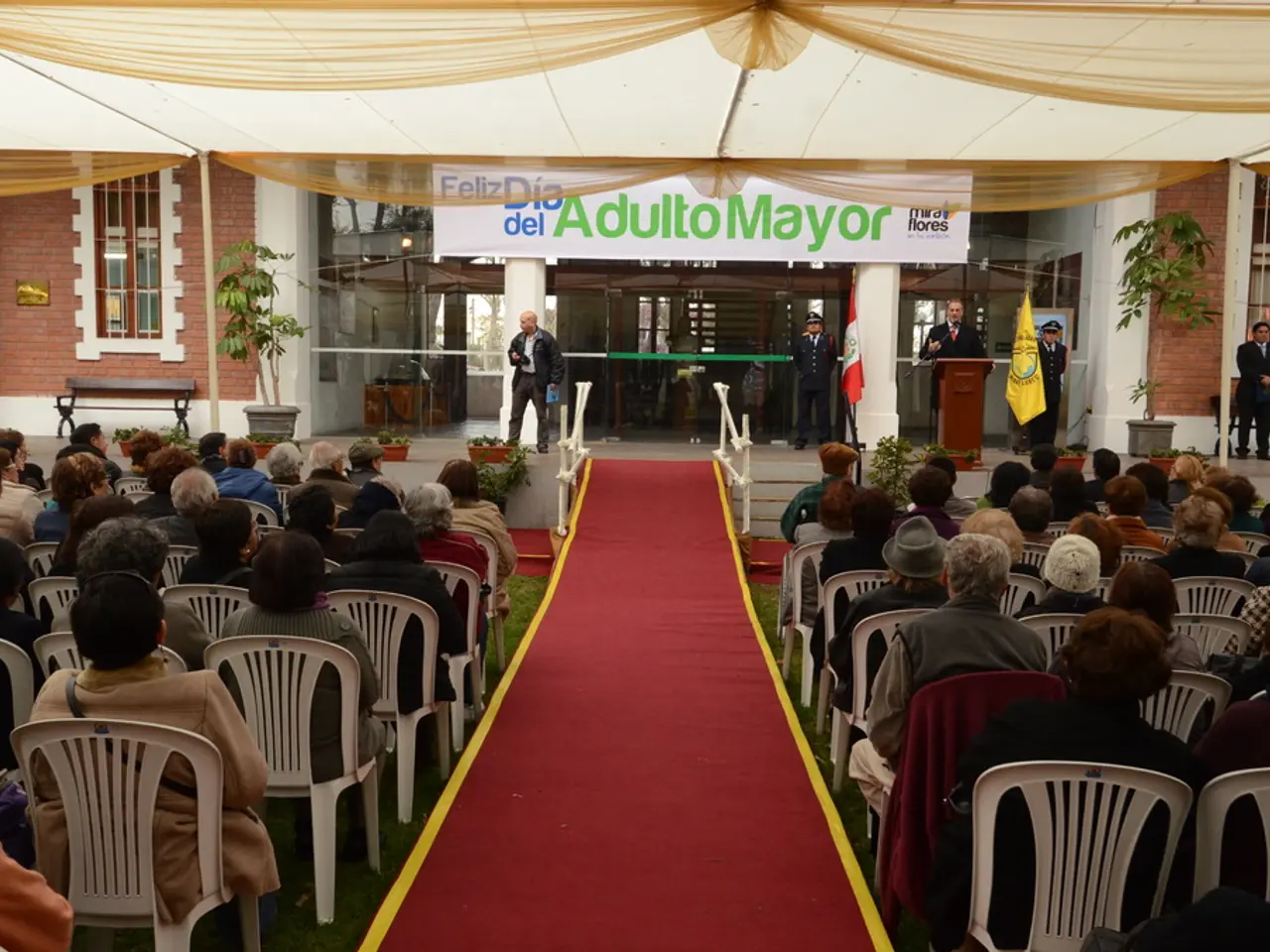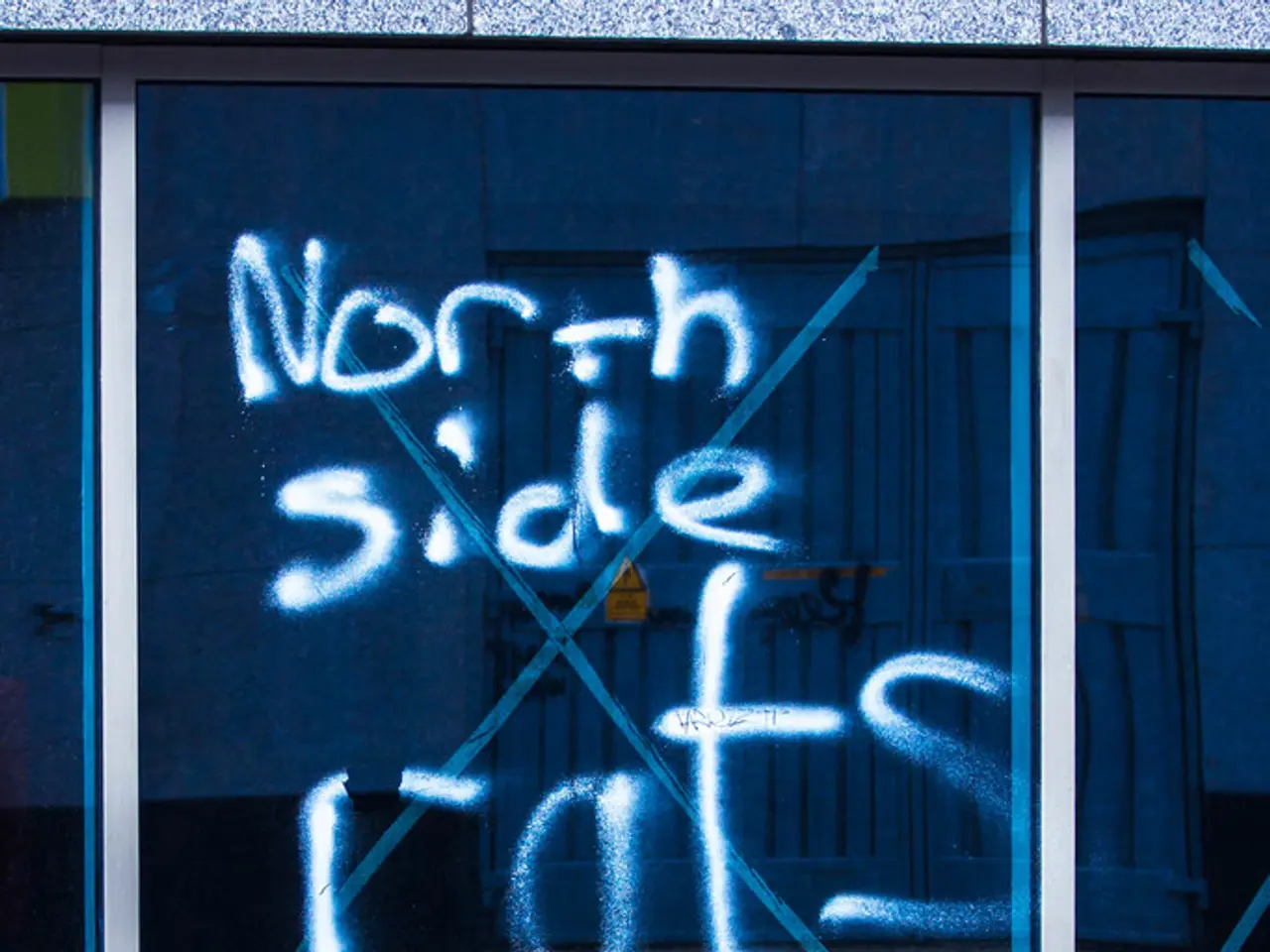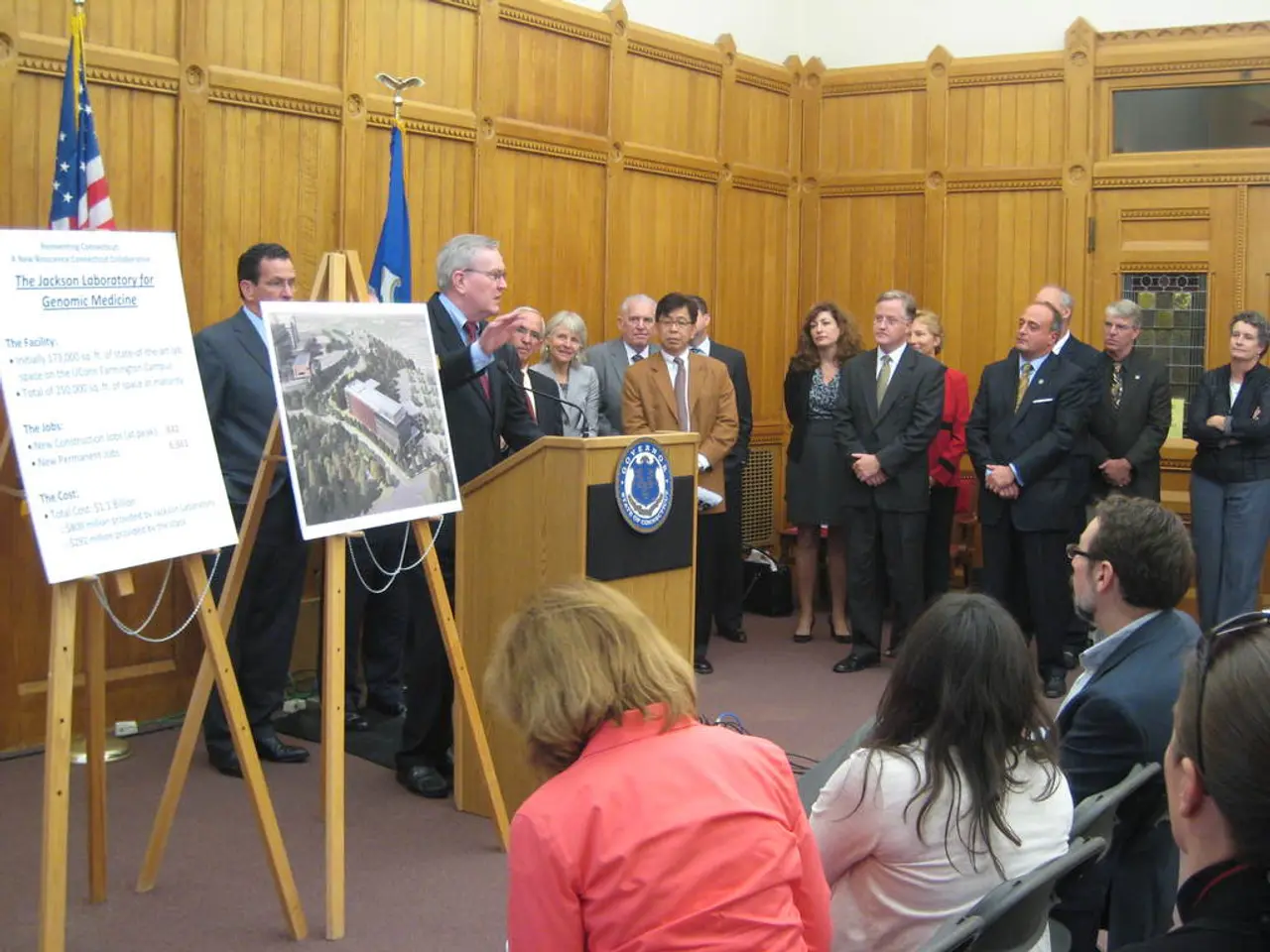Trump demands immediate resignation of Federal Reserve Chair Jerome Powell: "Resign now," Trump says, claiming it's already too late.
In a continuation of a long-standing dispute, President Donald Trump and Federal Reserve Chair Jerome Powell find themselves at odds over interest rates and the renovation of the Fed headquarters in Washington, D.C.
### The Feud's History
The tension between the two dates back to Powell's appointment as Fed chair under Trump in 2018. Initially, Powell pursued a policy of raising interest rates and reducing the Fed’s asset holdings, a move that drew criticism from Trump, who felt the actions were too aggressive. By late 2018, financial markets became volatile, and Trump publicly expressed regret over his nomination of Powell, accusing him of not acting quickly enough to ease rates.
The conflict resurfaced in 2025, after Trump's return to office, due to Powell's refusal to lower interest rates despite Trump's demands. Trump accused Powell of keeping rates "artificially high" and costing the U.S. a "fortune" by increasing the cost of financing the national debt. This culminated in Trump calling for Powell's immediate resignation, citing allegations from the Federal Housing Finance Agency director that Powell had given deceptive testimony to Congress regarding the Fed office renovations.
### Implications
The feud raises questions about the Fed's independence and the potential for political interference in monetary policy decisions. Powell has emphasised the importance of Fed credibility in maintaining price stability, warning that political interference could lead to loss of confidence, rising long-term interest rates, and runaway inflation.
Economically, Trump's persistent criticism reflects a concern over the impact of higher interest rates on the cost of government borrowing and economic growth. Powell’s cautious stance aims to balance inflation control with economic stability but conflicts with political pressure for rate cuts to stimulate growth. This discord creates uncertainty in financial markets and policy expectations.
Politically, the public spat highlights broader political polarization around economic policy. Threats to remove or pressure the Fed chair for political reasons risk undermining institutional norms and investor confidence. The calls for Powell’s removal, based on disputed testimony and policy disagreements, represent a rare and significant challenge to Fed leadership.
In summary, the Trump-Powell feud reflects deep disagreement over the pace and direction of U.S. monetary policy. While Trump demands rapid rate cuts to ease economic burdens, Powell prioritizes inflation control and credibility, emphasising the Fed’s independence amid political pressures. The ongoing conflict raises important questions about the balance between political influence and central bank autonomy and its consequences for the U.S. economy and financial markets.
[1] CNBC (2019) Trump calls Jerome Powell an 'enemy' and accuses Fed of 'insane' policies. [online] Available at: https://www.cnbc.com/2019/10/03/trump-calls-jerome-powell-an-enemy-and-accuses-fed-of-insane-policies.html
[2] Reuters (2025) Trump accuses Fed Chair Powell of keeping rates too high, calls for immediate resignation. [online] Available at: https://www.reuters.com/article/us-usa-fed-trump/trump-accuses-fed-chair-powell-of-keeping-rates-too-high-calls-for-immediate-resignation-idUSKBN2JM1QR
[4] The New York Times (2025) Trump Calls for Powell's Removal as Fed Chair After Renovation Scandal. [online] Available at: https://www.nytimes.com/2025/03/15/business/economy/trump-powell-fed-chair-removal.html
- The ongoing dispute between President Donald Trump and Federal Reserve Chair Jerome Powell involves not only interest rates but also the politics of policy-and-legislation, as evidenced by the renovation of the Fed headquarters in Washington, D.C.
- The escalating feud between Trump and Powell has significant implications for the economy, as higher interest rates driven by the Fed's monetary policy can contribute to rising expenses for the government, potentially exacerbating inflation.
- In the general news, the constant tension between Trump and Powell serves as a reminder of the intricate relationship between banking, politics, and the economy, highlighting the potential for political interference in monetary policy decisions.
- The discord between Trump and Powell underscores the importance of understanding the role of the economy, inflation, and interest rates in policy-and-legislation, providing insight into the complex web of financial connections that exist within the banking and political sectors.







